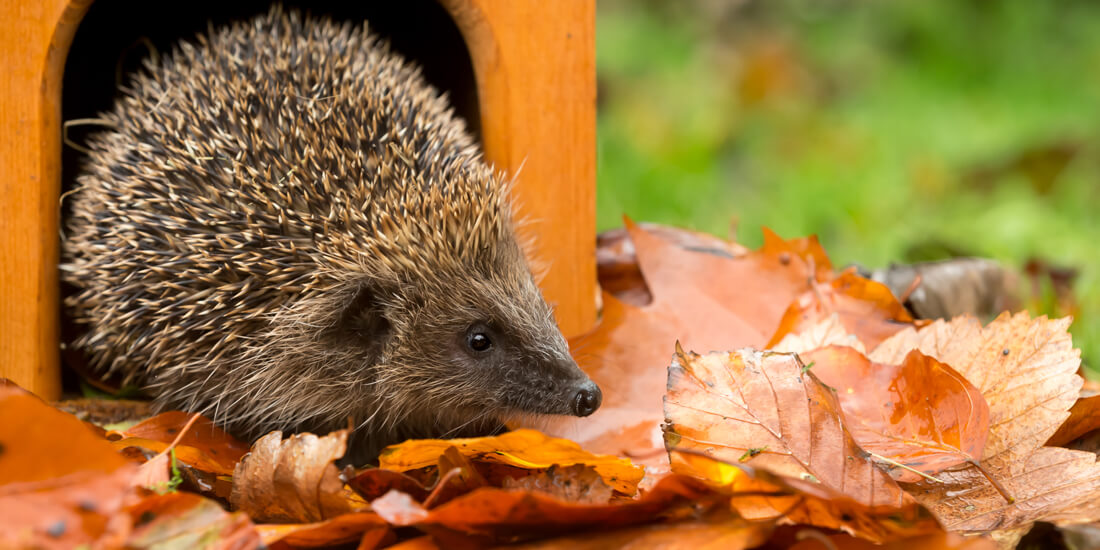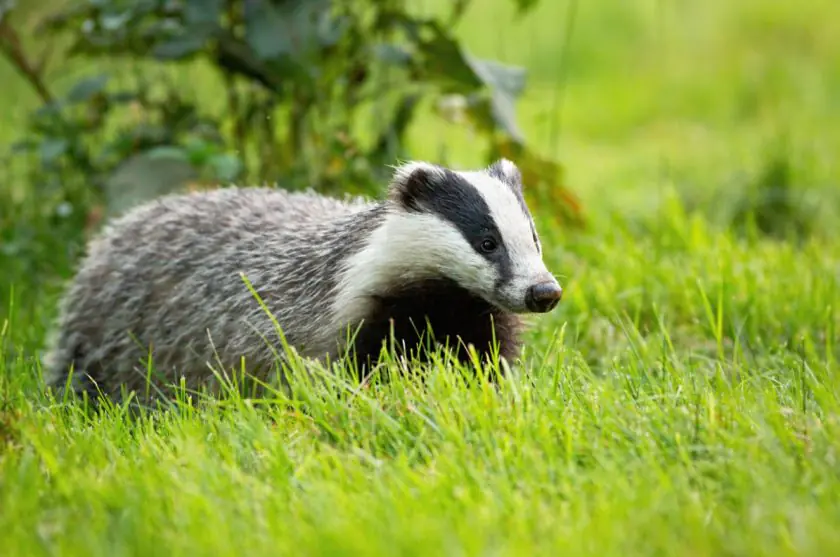How to help wildlife in your garden this winter

Birds, hedgehogs, foxes, badgers and more will all still be roaming from garden to garden in search of food or shelter. Here’s how you can give them a little help:
Save clippings and leaves
If you find you are still mowing your lawn (in some parts of the UK, grass growth does not stagnate until freezing temperatures), you can save the clippings and add them to a less used part of your garden for wildlife to find them. In order to keep your lawn healthy and to stop fungal disease forming, you should also rake up leaves and add them to this pile. Hedgehogs in particular use leaves and grasses to make their ideal home for hibernation, and by saving the bits you would usually throw away - you can give them a big helping hand.
Keep leftovers
Some UK wildlife, such as foxes – are big fans of leftovers. It is also safe for them to consume our leftovers, where it isn’t for other types of wildlife. Boiled potatoes, chicken carcass and fat scraps are all popular with foxes. Leave them out just after teatime, and your local foxes will be very thankful! Providing food for foxes also means they are less likely to dig up your lawn in search for food – so it’s a win-win for everyone.
Feed birds
Birds can sometimes be a little bit pesky for lawn lovers, as they often go after just-sown grass seed. However now that we are past the window sowing this year, you can be confident they won’t be feeding off your grass seed, yet they may still visit your garden in search of food. You can help them to thrive by feeding them a blend of seeds and nuts but try to avoid mixes that contain wheat. Mixes with wheat are most popular with pigeons and larger birds, and this will prevent smaller birds from being able to feed.

Put out a badger buffet and hedgehog happy meal!
Now that we’ve got foxes and birds covered, some of our other typical garden visitors in the UK includes badgers and hedgehogs. It’s vital that you research what foods are best for the wildlife in your area as some foods can do more harm than good. We've completed our own research and from resources such as the RSPB, Wildlife Trusts and Hedgehog Preservation Society, have made some recommendations. For badgers, stick with a blend of wet cat or dog food, fruits and nuts. For hedgehogs, its best to provide them with meat-based dry cat food. Whilst it is helpful to leave this food out, monitor to make sure that wildlife visits to your garden are not so frequent that your guests become dependent on you.
Provide shelter
Our gardens offer less shelter for wildlife than ever before, as many UK homeowners opt for a low maintenance garden. This means less hedges, less bushes, and less unkept areas that are perfect for wildlife looking for a safe place to say over winter. If you want to maintain this look but also want to help wildlife, it’s important to integrate some shelter into your garden. Bird houses and hedgehog homes are inexpensive to purchase or make at home and can go a long way to helping nature that is in need. If you do plan to add one to your garden, a good tip for bird houses is to keep them up to four metres above the ground on a wall / fence or tree and out of an area that gets direct sunlight or is open to the elements. For hedgehog homes, try to place them in an area with undergrowth. If you don’t have an area like this, make the undergrowth yourself by gathering up leaves and grasses.
Provide water
It may seem obvious and such an easy thing to do, but it is also easily forgotten. Many of our gardens do not retain rain water in a format that is accessible for wildlife. You can help thirsty travellers stay hydrated by leaving out shallow water bowls. Whilst it is helpful to do this for wildlife during a heatwave, it is equally as important to do it during winter. When temperatures reach minus figures, other water sources such as ponds will freeze over leaving less availability of water for wildlife. Your water bowls can also double up as bird baths if you add stones in for them to use to get in and out of the bath!